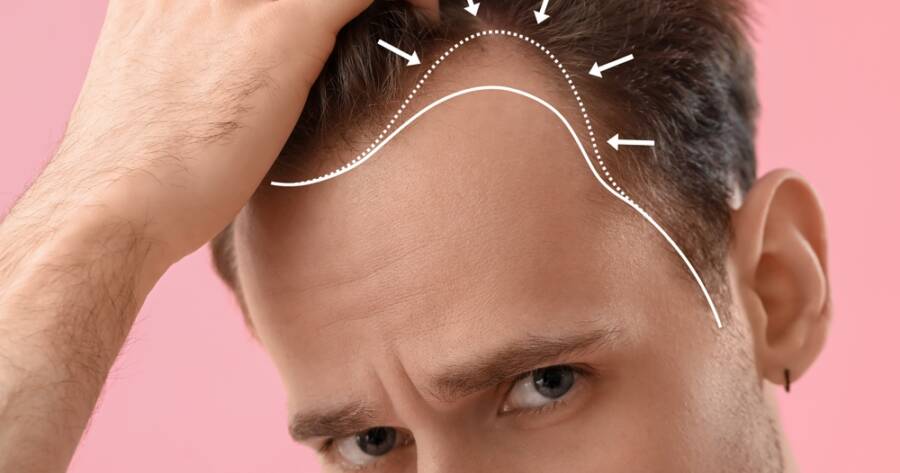Hair loss is a common issue that affects many people, but not everyone is aware of the surprising factors that can lead to thinning or shedding hair. While genetics and age are widely recognized causes, there are other unexpected triggers that can impact hair health. Understanding these causes and taking steps to prevent them can help you maintain a healthy mane for longer. Explore some of the lesser-known reasons for hair loss, as well as tips to keep your hair strong and vibrant.
Stress: The Silent Hair Thief
It’s well known that stress can have a negative impact on our overall health, but did you know that it can also cause hair loss? High levels of stress can disrupt the natural growth cycle of your hair. This leads to a condition known as telogen effluvium, where hair follicles prematurely enter the shedding phase. This type of hair loss is often temporary, but it can be alarming when it happens.
To manage stress and protect your hair, focus on stress-reduction techniques. Regular physical activity, meditation, deep breathing exercises, and even a hobby that relaxes you can help reduce stress levels. Getting enough sleep and staying socially connected can also support mental health, preventing stress from affecting your hair.
Poor Diet: Lack of Essential Nutrients
A poor diet can lead to several health problems, including hair loss. Hair needs certain vitamins and minerals to grow properly, and a deficiency in any of these can cause hair to become weak or fall out. Key nutrients such as iron, zinc, vitamin D, biotin, and omega-3 fatty acids play vital roles in maintaining healthy hair.
To prevent hair loss due to nutritional deficiencies, focus on eating a balanced diet that includes a variety of nutrient-rich foods. Leafy greens, lean proteins, nuts, seeds, and fatty fish like salmon are all excellent sources of the nutrients your hair needs to thrive. If you suspect you’re not getting enough of these nutrients, consider consulting with a healthcare provider about adding supplements to your routine.
Hormonal Imbalances: A Hidden Culprit
Hormonal changes are another unexpected cause of hair loss, particularly in women. During pregnancy, menopause, or conditions such as polycystic ovary syndrome (PCOS), fluctuations in hormone levels can disrupt the normal hair growth cycle. Women often experience hair thinning or shedding due to a drop in estrogen levels, especially during menopause.
If you suspect that hormonal imbalances are contributing to your hair loss, it’s important to speak with a healthcare professional. A blood test can help identify hormonal issues, and treatments such as hormone therapy or medications may be recommended to restore balance and promote hair regrowth.
Over-Styling and Harsh Hair Treatments
Everyone loves experimenting with different hairstyles, but excessive use of heat tools, chemical treatments, and tight hairstyles can harm your hair over time. Over-styling can lead to a condition called traction alopecia, where the hair is pulled too tightly, resulting in breakage and hair loss. Additionally, the frequent use of hair dyes, perms, or straightening treatments can weaken the hair shaft, leading to thinning.
To protect your hair, try to avoid excessive heat styling and give your hair breaks between chemical treatments. If you must use styling tools, apply a heat protectant spray beforehand to minimize damage. Opt for looser hairstyles, and avoid wearing tight ponytails or braids for long periods. Regularly trimming your hair will also help prevent split ends and keep your locks looking healthy.
Environmental Factors: Pollution and Sun Exposure
While it’s easy to focus on internal factors, the environment can also play a role in hair loss. Exposure to pollutants, such as dust, smoke, and chemicals, can damage the hair and scalp. Additionally, prolonged sun exposure can cause hair to become dry, brittle, and more prone to breakage. UV rays can also damage hair follicles, contributing to thinning over time.
To protect your hair from environmental stressors, consider wearing a hat when spending time outdoors to shield your scalp from the sun. Regularly wash your hair to remove any buildup of pollutants and use a deep conditioning treatment to restore moisture. If you live in an area with high pollution, you might want to use a clarifying shampoo once a week to keep your scalp clean.
Medical Conditions: Undiagnosed Issues
Certain medical conditions, such as thyroid disorders, autoimmune diseases, and scalp infections, can cause hair loss. Conditions like hypothyroidism or hyperthyroidism can disrupt hair growth by altering hormone levels in the body. Autoimmune diseases like lupus or alopecia areata can lead to patchy hair loss. Scalp infections, such as ringworm, can also damage hair follicles and cause hair to fall out.
If you are experiencing sudden or unexplained hair loss, it’s important to consult with a doctor. A healthcare professional can help diagnose any underlying medical conditions and recommend appropriate treatments. Early intervention can prevent further damage and help restore hair growth.
Embrace Healthy Habits to Protect Your Hair
Hair loss can result from a variety of factors, many of which are not immediately obvious. Whether it’s stress, diet, hormones, or environmental factors, taking care of your overall health can make a big difference in preventing hair loss. By managing stress, eating a nutrient-rich diet, avoiding harsh styling practices, and protecting your hair from environmental damage, you can keep your hair healthy and strong.
If you notice significant hair loss, don’t hesitate to consult with a healthcare professional for personalized advice and treatment options. Your hair deserves the best care, and with the right habits, you can maintain a full, vibrant mane for years to come.

